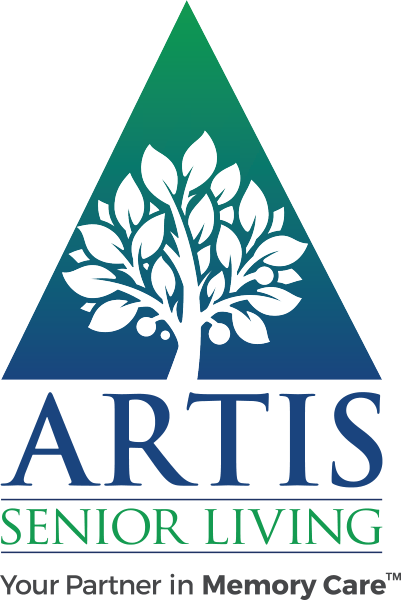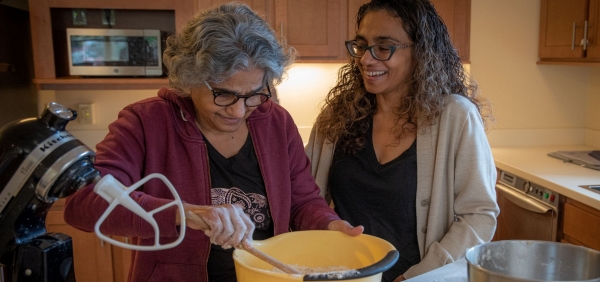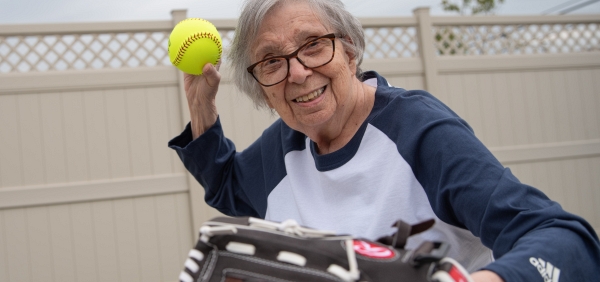Was It a Senior Moment or Something More?

We’ve all had the experience of opening the refrigerator and not remembering why, or telling a friend about a movie but blanking on the name of the actor who starred in it. You might consider this simple forgetfulness or, if you’re older, you might laughingly say you’re having a senior moment. But how do you know if your senior moment is a harmless lapse or a sign of something more serious, like dementia? Our guide can help you recognize the difference between a senior moment and dementia, and know when to talk to your doctor.
What Is a Senior Moment?
A fleeting lapse in memory or momentary confusion can occur at any age, but because these experiences tend to become more common as we get older, they’re often known as senior moments. These are the times you forget to shut the garage door, can’t remember an address you typically know by heart, misplace your reading glasses, or forget the name of a friend from high school.
Age-related memory problems like these are common as we get older because there’s a natural decline in concentration and the brain’s processing speed. (Don’t worry, other aspects of cognition—vocabulary and abstract reasoning, for example—tend to improve as we get older.)
Is It Just a Senior Moment?
While memory lapses are a normal part of the aging process, there are health conditions that can be mistaken for senior moments, including:
- Mild cognitive impairment (MCI): This refers to cognitive changes that are serious enough to be noticeable to you or to family members, but which don’t interfere with your ability to carry out day-to-day activities. People with MCI may or may not go on to develop dementia.
- Dementia: This refers to problems with memory, thinking and problem-solving that interfere with daily life. There are different types of dementia, but Alzheimer’s disease is the most common.
- Memory loss may also be caused by a vitamin deficiency, infection, certain medications, and other triggers that a doctor can diagnose.
When Should You Visit a Doctor?
Specialized testing is required to determine whether memory lapses are a normal symptom of aging or something more serious. But there are certain signs that suggest it may be time to talk to a doctor about what you’re experiencing, such as:
- Misplacing common items and being unable to retrace your steps to find them. Compare this to a senior moment, when you may not immediately know where your glasses are, but can quickly recall that you last used them when you were reading in the den.
- Getting lost or finding yourself in a seemingly unfamiliar place. With a senior moment, on the other hand, you recognize that you’re having a lapse without feeling significant distress.
- Not recognizing that memory issues are affecting your daily life. If it’s a senior moment, such as that awkward time you forgot your friend’s wife’s name, you’ll likely remember it happened.
- Inability to complete familiar tasks, such as starting the coffee maker. A senior moment, on the other hand, is forgetting to buy coffee filters when you’re at the store.
- Forgetting recent events, such as yesterday’s phone conversation with your sister. With normal age-related memory loss, you may not remember events from the distant past, like the name of your prom date.
- A worrisome increase in the number of senior moments you’re experiencing.
Tips for Keeping Your Mind Sharp
While there’s no known cure for dementia, there are steps you can take that may decrease your risk of cognitive decline:
- Eat a healthy diet. Opt for plenty of fresh fruits and vegetables, whole grains, legumes, nuts and fish.
- Exercise regularly. The Centers for Disease Control and Prevention recommends older adults get 150 minutes of moderate intensity physical activity every week, plus 2 days of strength training and balance-promoting activities at least 3 days a week.
- Get good-quality sleep. Experts recommend adults get at least 7 hours of sleep and keep to a regular sleep schedule.
- Stay social. Isolation and loneliness are associated with an increased risk of dementia, as well as a host of other health issues.
- Keep learning. Research suggests that challenging your mind by learning new skills, such as digital photography, can protect memory and cognition.
Artis Senior Living: Your Partner in Understanding Aging
At Artis Senior Living, we strive to empower people living with dementia and their loved ones as they navigate the aging process and explore care options. Attend one of our educational events for caregivers, or contact us if you have questions about memory loss or the early signs of dementia. If you think a loved one might benefit from 24-hour care, find a community near you and discover how our unique approach to Memory Care fosters a sense of connection and purpose in residents.



